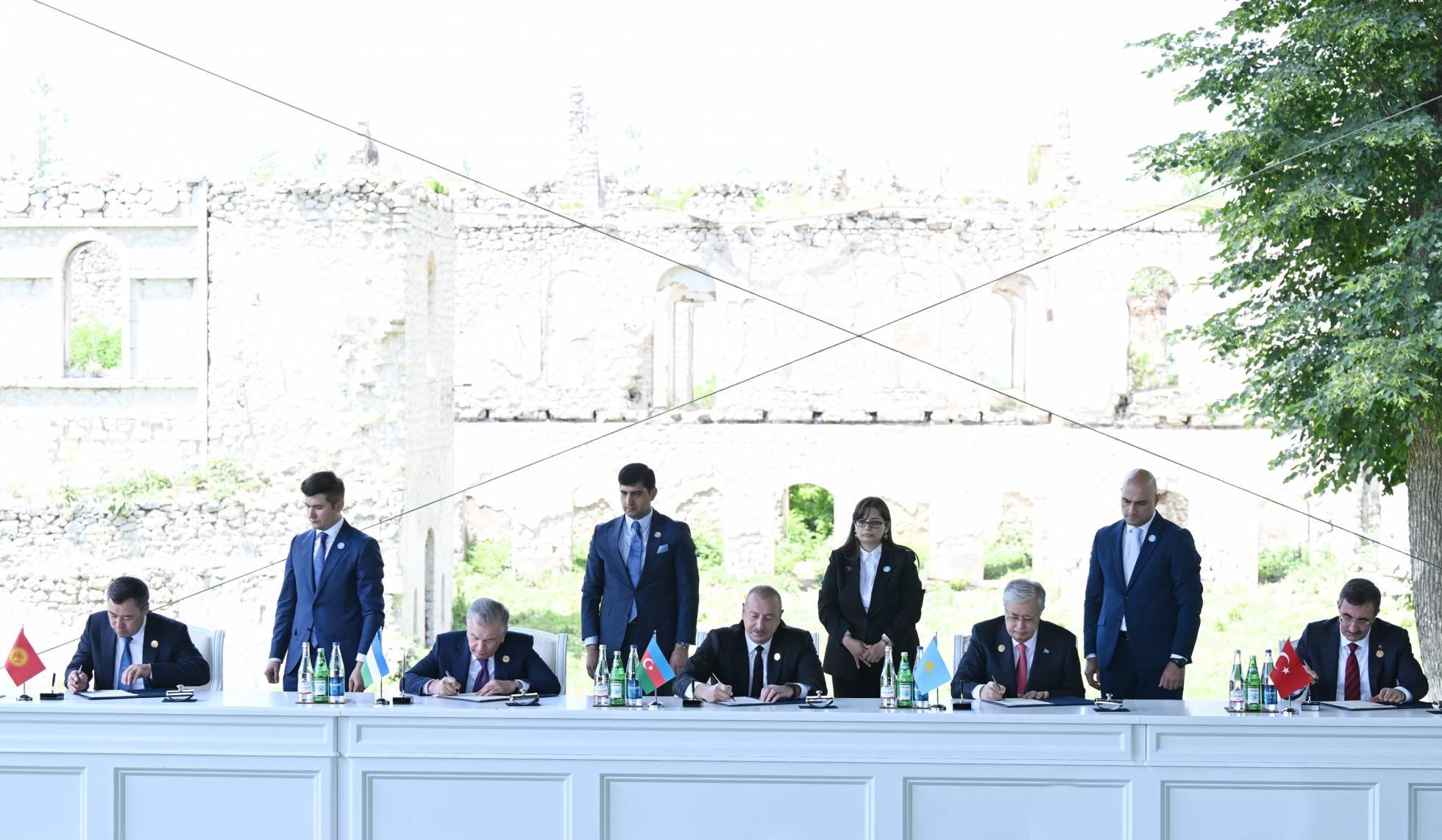Armenia: A pawn of external influence in the South Caucasus Pundit assesses destabilizing factors in the region
Esen Usubaliyev, a Kyrgyz political scientist, a candidate in historical sciences, and an expert on international relations and security sat for an interview with Caliber.Az to share his insights on the situation in the region.

- In your recent interviews, you’ve often discussed the security issues in our regions, i.e. South Caucasus and Central Asia. What are the main concerns and incentives for cooperation?
- The stability and security of the South Caucasus have become crucial for Central Asia, particularly for implementing large-scale transport, trade, and economic projects. The importance of the Caspian Sea as a vital transport artery has significantly increased, whether we're discussing the Middle Corridor or multimodal corridors linking Central Asia and Russia via the Caspian Sea. As regional ties intensify, the security of this shared space becomes paramount. Key priorities for common space security include resolving interstate conflicts and addressing the threats of terrorism and extremism. These threats are often used by external forces to destabilize the region and interfere in the internal affairs of states.
If a policy in the South Caucasus leads to destabilization or hinders the development of transport, trade, and other ties, it often reflects an external agenda aimed at controlling and imposing favourable rules and norms. The South Caucasus is a more complex geopolitical and geo-economic space than Central Asia, with more pronounced internal contradictions and external influences.
- When you mention security issues, are you specifically referring to Armenia as a destabilizing factor in the South Caucasus?
- Armenia is currently a partner of Central Asian countries within organizations such as the CIS, EAEU, and CSTO. The integrity and efficiency of these organizations, as well as the successful implementation of projects across the Eurasian space, are particularly important for all members and partners. Therefore, all countries in this space are interested in seeing an economically developed, politically stable, and predictably foreign-policy Armenia. However, the current policies of the Armenian leadership pose serious and complex threats not only to neighbouring countries but also to the Armenian people themselves, who are enduring the hardships brought about by their government’s political course.
This situation indicates that Armenia does not always make independent decisions in foreign policy and can be seen as an instrument of external influence in the South Caucasus. This is concerning not only for Azerbaijan and Georgia but also for Russia, Türkiye, and Iran. All these countries, being integral parts of the South Caucasus, do not accept interference in the region's internal affairs.
Recently, Armenia's intention to withdraw from the CSTO, and the EAEU, and to radically shift its policy towards closer ties with the West has raised concerns. The overt development of military and political cooperation with NATO countries, including the reception of military hardware and equipment, does not contribute to an atmosphere of peace and stability in the region. However, it is encouraging that the Armenian leadership still declares a course towards signing a peace treaty with Azerbaijan and normalizing relations with Türkiye. This gives hope for the implementation of many transport and economic projects that also affect Central Asian countries.
- What is the role of the Shusha and Karabakh Declarations in ensuring security in the South Caucasus?
- The Karabakh and Shusha Declarations are significant due to their long-term and comprehensive nature, impacting not only the region but also the broader area. Regarding security issues, they establish a foundation for an open international platform for cooperation and dialogue, contributing to the security and stability of interested countries. The Shusha Declaration prioritizes security, emphasizing the partnership between Azerbaijan and Türkiye primarily in the South Caucasus. In contrast, the Karabakh Declaration outlines directions for further development of Turkic integration, focusing on cooperation in financial, transport, economic, defence, industrial, humanitarian, educational, and cultural spheres.
The Karabakh Declaration particularly emphasizes trade corridors and the development of trade relations throughout the Turkic world. In this context, security issues become more extensive and specific, improving as the Turkic space becomes more integrated, especially in terms of communications and transport transits.

- In one of your interviews, you called Russia and China the most natural partners for our two regions. Why them?
- When discussing the geopolitics of Eurasia, the influence of Russia and China is undeniable for both the countries of the continent and external powers interested in implementing their projects and initiatives here, such as the US, EU, Japan, and South Korea. For the South Caucasus, the Chinese factor may not be as pronounced due to geographical distance, but there is a significant historical influence from Iran. Iran has historically shaped the cultural, educational, religious, and ethnic character of both Central Asia and the South Caucasus, a factor that cannot be ignored.
How Iran leverages its historical and contemporary opportunities remains to be seen, particularly as regional and global interactions between Russia, Iran, and China intensify. Countries in the region must consider their roles within the frameworks of cooperation and interaction being established by these major players in Central Asia and the South Caucasus.
Azerbaijan's interest in membership in organizations like the Shanghai Cooperation Organization (SCO) and BRICS, as well as its participation in the consultative meetings of Central Asian countries, reflects a pragmatic approach. Additionally, the Declaration on Strategic Partnership signed between Baku and Beijing is a significant milestone, indicating Azerbaijan's strategic alignment and interests.
- Recently, the United States has expressed a strong desire to promote the signing of a peace treaty between Azerbaijan and Armenia. What goals does Washington pursue here?
- The conclusion of a peace treaty between Azerbaijan and Armenia is a highly sought-after objective for any foreign policy department of countries actively engaged in the South Caucasus. The country that successfully brokers this historic treaty, leading to the recognition of state borders and the normalization of relations between Armenia and Türkiye, will not only be recognized as the "main peacemaker of the region" but will also leverage this achievement as a significant factor of "soft power" and positive influence in the South Caucasus and international politics.
This ambition explains the proactive roles of Germany, France, the EU, and, more recently, the United States, which clearly aims to claim the laurels of the main peacemaker and thereby demonstrate the effectiveness of Western diplomacy. Armenia is likely to be receptive to this role of the US or other EU countries. This receptiveness might explain the West's active policy of rearming Armenia and "freezing" its participation in the CSTO.
Ultimately, it is the peoples of Azerbaijan and Armenia who stand to benefit most from the conclusion of a peace treaty. If the current Armenian authorities delay this process, there remains the possibility of a change in political leadership that will prioritize the fundamental interests of the Armenian people without external interference.








